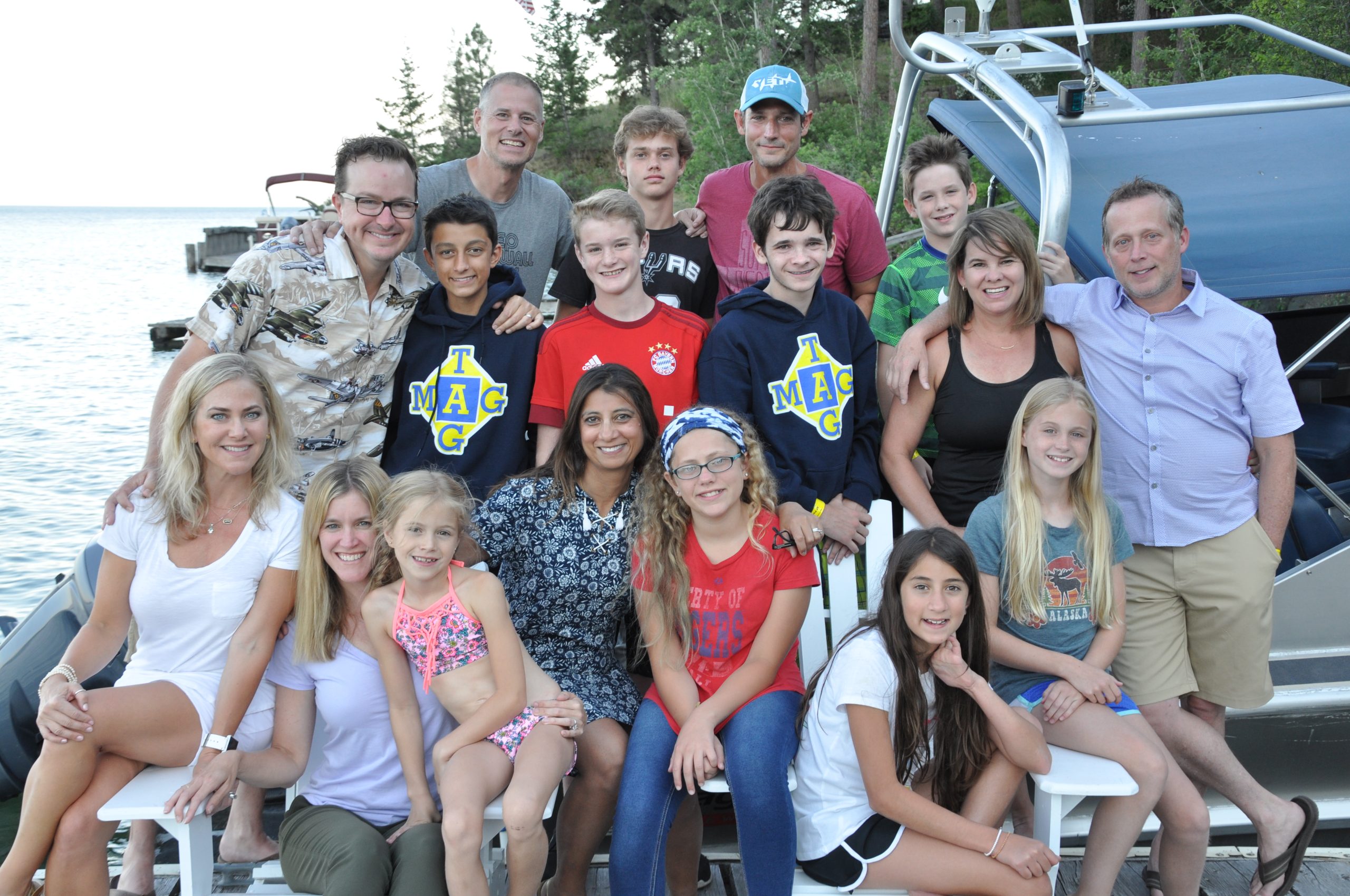
Photos courtesy of Mita Havlick.
On vacation with a group of long-time friends — and after a few cocktails — I raised my glass and unequivocally asserted an emotional and heartfelt “I love you” to the other seven adults in my company. I said it not because I had loose lips from indulging in one too many, but because I truly felt it.
I do not believe in token offers. I do not offer them, and I almost always accept them. Tokenism has a specific place in my playbook of life. I believe in giving what you have — your time, your talents, an offer to pay for lunch — only if it’s genuine. If it’s not, odds are high that I’ll take you up on it.
So, when I told these amazing people who are surrogate parents to my children that I love them, they knew I meant it.
At this point, we had known each other for close to six years and through experiences that bind people for life, including supporting each other from births to deaths, kindergarten to middle school, layoffs to new jobs, and in sickness and in health, I was shocked when one of the seven wouldn’t, er … couldn’t say it back.
To say that I was affronted is an understatement.
I looked at Robert and asked him pointedly, “Bobby, do you love me?”
Robert, clearly discomforted, replied, “Mita, I am very fond of you and consider you a close, personal friend …”
“… that you love,” I added.
“You are indeed someone that I hold dear …” he continued.
“… and love,” I finished.
We played this cat-and-mouse game intermittently from the early evening to well past midnight. And after everyone woke the next day, we started up again. Well, in full disclosure, I continued to badger, and Robert was kind enough to deflect instead of choosing to curse me out.
I learned Robert grew up in a home where sentiment was sealed relatively tight, and fortitude reigned. Robert is the person you call in the middle of the night when your Uber doesn’t show up and during the day when you can’t pick up your kid from school. He is solid, dependable and stoic. But one to share his feelings? No, not him.
My upbringing was similar in this regard. The cultural norm in our Indian immigrant household did not include expressing effusive emotion. And while I always and 100% felt loved by my parents, I can’t recall a single time in my childhood that my parents uttered, “I love you” to my brother or me — or to each other. But once I was on my own and free from Indian expectations of appropriate behavior, that is, I became “more American,” I found it liberating to relay my genuine feelings.
Perhaps this was the gift I was trying to give Robert.
A few days later and when our vacation neared its end, I closed our long-running conversation with a sincere, “You know what, Bobby? I know you love me and everyone here. That’s good enough.”
And it was. Yes, words matter, and those three simple ones, “I love you,” can have great weight. But feeling love holds so much more value. I often tell my children, “Sorry is an action word.” It’s not enough to apologize, but one must take accountability and modify behavior.
Love, too, is an action word. And what is actionable is Robert’s friendship, support and generosity over these many years.
The whole exchange kept on for ages to our own amusement and of our friends — the proverbial inside joke that wouldn’t die. Until it did. Robert turned to me one evening after a few cocktails, and said, “I love you, Mita.”
And I knew he meant it.







